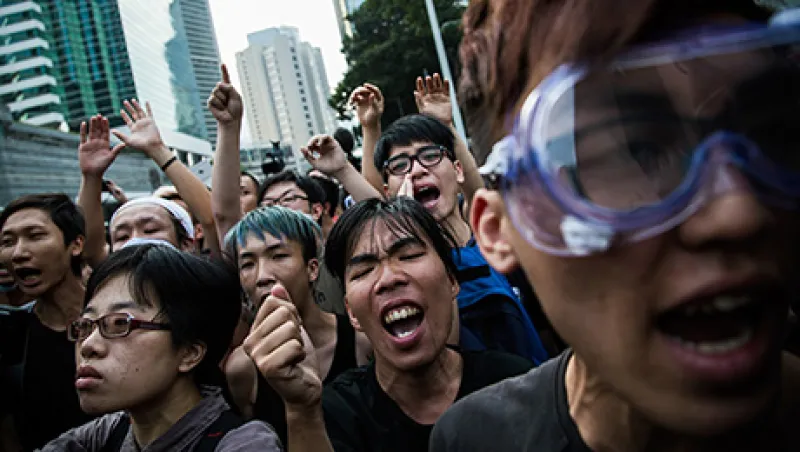
Pro-democracy protesters chant outside the Pacific Place shopping mall in Hong Kong, China, on Monday, Oct. 13, 2014. Hundreds of men attempted to break through barricades erected by Hong Kong pro-democracy protesters near the city's business district, as a third week of rallies tried the patience of truck and cab drivers. Photographer: Lam Yik Fei/Bloomberg
Lam Yik Fei/Bloomberg

